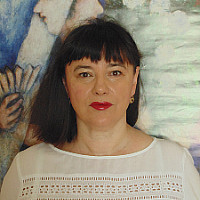Course title:
Rhetoric of science
Course code: PSL221
Course status: Obligatory
Course leader: Gordana Varošanec-Škarić
Course instructor:
Language of instruction: English
Total hours: 8S
Form of instruction: Lecture
ECTS credits: 4
Course content by topics:
Contemporary definition of rhetorics as a discipline; Introduction to the rhetoric of science (the historical framework); Rhetorical audience; Rhetorical strategies; Rhetorical properties of a research process; Probability of scientific truth; Postmodernist features of the rhetoric of science; Models of argumentation
Learning outcomes at course level:
1) To critically evaluate scientific theories in diachronic and synchronic perspectives; 2) To distinguish the degrees of probability in relation to the main thesis of a research paper; 3) To design a research procedure taking into account the topic of research; 4) To analyse and interpret scientific discourse according to various established rhetorical models of argumentation; 5) To develop critical thinking about types of argumentation; 6) To provide explanations for research findings in an appropriate way with regard to the sample and research problems; 7) To write one’s own research paper and adapt its oral presentation to the audience;
8) To explain one’s own research in a professional manner Learning outcomes at programme level:
| IU1 | IU2 | IU3 | IU4 | IU5 | IU6 | IU7 | IU8 |
| x | x | x | X |
Reading list:
Varošanec-Škarić, G. (2017). The Scientific Rhetoric of Nikola Tesla // New Insights into Rhetoric and Argumentation / Runjić-Stoilova, Anita ; Varošanec-Škarić, Gordana (ed.).; Split : Faculty of Humanities and Social Sciences, 210-238.; Gross, A. G. (1990). The Rhetoric of Science. Cambridge, Massachusetts, London: Harvard University Press.; Husserl, E. (1990, first edition1954). Kriza europskih znanosti i transcendentalna fenomenologija. Zagreb: Globus.;
Husserl, E. (2005). Logička istraživanja I-III. Zagreb: Naklada Breza.; Krips, H., Mcguire, J. E. i Melia, T. (eds.), (1995). Science, Reason, and Rhetoric. Pittsburgh, Konstanz: University of Pittsburgh / Universitätsverlag Konstanz.; Perelman, Ch. i Olbrechts-Tyteca, L. (2000, originally published in French 1958). The New Rhetoric: A Treatise on Argument. Notre Dame: University of Notre Dame Press.; Škarić, I. (2011). Argumentacija. Zagreb: Nakladni zavod Globus.; Tesla, N. (1919). „The Moon’s Rotation“, Electrical Experimenter, April 1919
http://www.teslauniverse.com/pdf/articles/19190400-01.pdf; Toulmin, S. E. (2003, first edition 1958). The Uses of Argument. Cambridge University Press.; Aristotel. (1989). Retorika. Zagreb: Naprijed.; Aristotel. Organon (Topika,Dijalektika, Retorika).; van Eemeren, F. H., Grootendorst, R. i Snoeck Henkemans, F. (1996). Fundamentals of Argumentation Theory.
Mahwah, New Jersey: Lawrence Erlbaum Associates Pub.; Gadamer, H. G. (2003). Truth and Method. New York: Continuum.; Habermas, J. (2006). Budućnost ljudske prirode. Vjerovanje i znanje. Zagreb: Naklada Breza.; Heidegger, M. (1996). Kraj filozofije i zadaća mišljenja. Zagreb:
Naklada Naprijed.; Kvintilijan, M. F. (1985). Obrazovanje govornika. Sarajevo: Veselin Masleša.; Nelson, J. S., Megill, A., MacCloskey, D. N. (eds.), (1987). The Rhetoric of the Human Sciences: Language and Argument in Scholarship and Public Affairs. London, Madison: The University of Wisconsin Press.; Tindale, Ch. W. (1999). Acts of Arguing. State University of New York Press.; Toulmin, S. (2001). Return to Reason. Cambridge, Massachusetts, London: Harvard University Press.; Tesla, N. (1919). „My Inventions“, Electrical Experimenter, February-June and October 1919 http://www.tfcbooks.com/tesla/1919-00-00.htm
Assessment of student achievement: course attendance, oral presentation of an assigned scientific theory (from various fields)
Quality assurance mechanism: student survey

